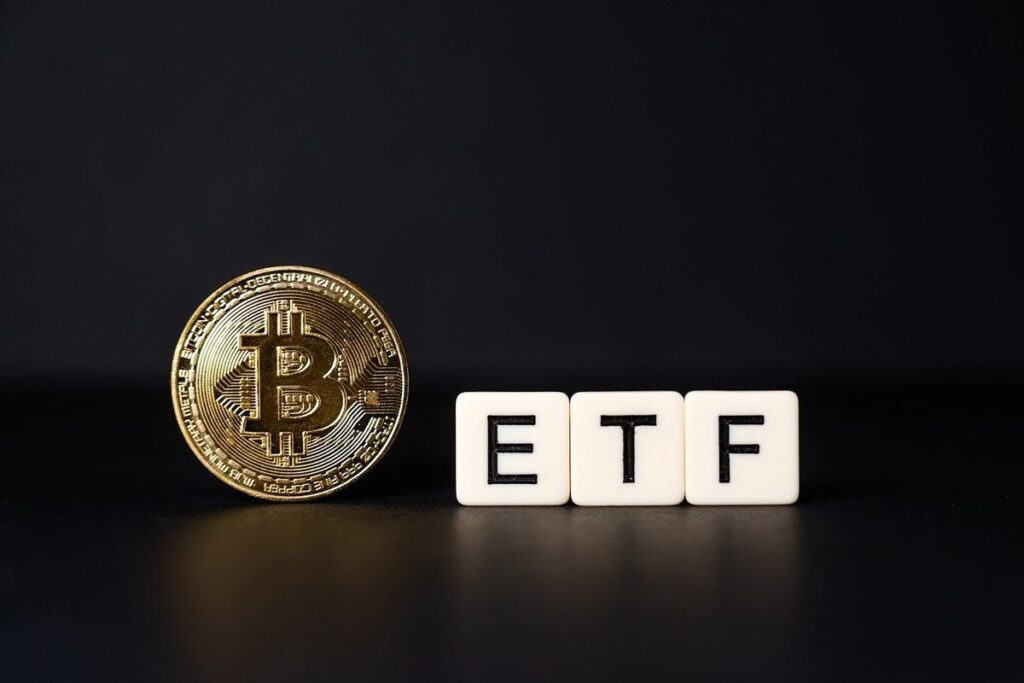Bitcoin’s Spot ETF saw a $149 million outflow on January 10, 2025, a major cryptocurrency market event. Bitcoin Spot ETF Sees $149M This shows changing investor sentiment and market variables that affect Bitcoin-backed financial product demand. This article examines the recent outflows, their effects on Bitcoin’s price and the ETF market, and institutional investing methods.
Bitcoin Spot ETF
A Bitcoin Spot ETF lets investors speculate on Bitcoin’s price without owning it. Spot ETFs contain actual Bitcoin, unlike futures ETFs, which track Bitcoin’s price through contracts for future delivery. This implies the ETF’s value matches Bitcoin’s real-time price, better representing its market value. As institutional investors seek Bitcoin exposure through regulated financial markets, Bitcoin Spot ETFs have grown in popularity.
$149 Million Outflow Mean
The January 10 $149 million outflow represents a major investor move. Bitcoin ETFs attract institutional and ordinary investors seeking a safer, more regulated option to invest in Bitcoin. However, this big outflow implies a change in opinion, with many investors withdrawing from the ETF. These withdrawals may be caused by market volatility, regulatory changes, and macroeconomic situations.

Main Reasons for Outflows
Market Unpredictability:
Bitcoin has always been volatile, and its price changes can shake investor confidence. Bitcoin prices fluctuated sharply before January 10, which may have caused ETF investors to reconsider their positions. Due to its cyclical nature, investors flee the bitcoin market at times of uncertainty. The Bitcoin Spot ETF’s outflow may indicate investor risk aversion as Bitcoin’s price fell or missed expectations.
Regulatory Concerns:
The worldwide cryptocurrency regulatory landscape is unsettled. The US has struggled to regulate crypto assets like Bitcoin. Investor behaviour may have been affected by concerns about regulatory crackdowns or ETF compliance requirements. Recent government enforcement measures on crypto-related businesses and exchanges may have caused institutional investors to quit Bitcoin Spot ETFs in favour of safer or more predictable investments.
Institutional Strategy Shifts:
Investors seek to maximise returns while minimising risks. Bitcoin Spot ETF outflows may signal that institutional investors are transferring their capital to other Bitcoin or digital asset exposures. Investors who expect lower fees or better performance from Bitcoin futures contracts or private equity investments in Bitcoin-related companies may prefer direct Bitcoin ownership over holding a product tied to Bitcoin’s price movements.
Bitcoin Price Effect of Outflows
The cryptocurrency market relies on Bitcoin Spot ETFs to allow large investors to access Bitcoin safely and easily. Thus, large outflows, especially if they coincide with market sell-offs, may lower Bitcoin’s price. ETF outflows do not always affect Bitcoin prices. Large outflows may suggest pessimistic sentiment or portfolio rebalancing rather than market departure. Bitcoin prices are affected by macroeconomic conditions, investor mood, and technology. Thus, Bitcoin Spot ETF outflows may affect short-term prices but not long-term market patterns. Bitcoin has repeatedly recovered from large outflows as new investors and capital enter the market.
Broader ETF Market Implications
ETF market consequences extend beyond the $149 million outflow on January 10. ETFs are safer and more liquid than direct asset ownership, making them vital for regular and institutional investors seeking cryptocurrency exposure. A significant outflow can propagate through other ETF products, increasing crypto financial ecosystem volatility. This outflow may also lead to Bitcoin Spot ETF market regulation. This data may help regulators assess Bitcoin-related financial product demand and alter ETF rules or requirements based on investor behaviour. This may affect future ETF launches and modifications, as well as market expectations for Bitcoin’s price and liquidity.
Read More: Canaan Unveils BTC Mining Heaters at CES 2025
Conclusion
On January 10, 2025, Bitcoin Spot ETFs lost $149 million. Cryptocurrency investing is difficult and ever-changing. While institutional investors may be cautious, it does not necessarily reflect a long-term pessimistic trend for Bitcoin. Instead, it emphasises the cryptocurrency market’s fluid attitude, laws, and market conditions. Investors should remember that the crypto market is volatile, and Bitcoin ETFs—like all cryptocurrency-related assets—are affected. Staying educated and flexible as the market matures is essential.

